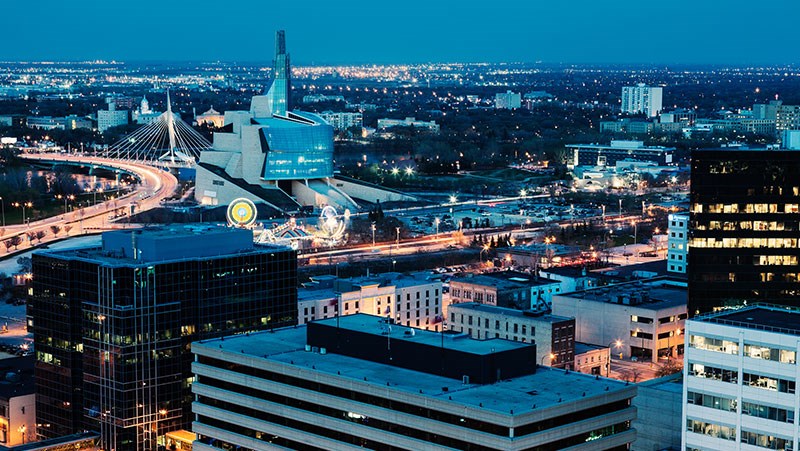Less resource-dependent than its prairie kin to the west, Winnipeg was long left out of the commodity boom that has powered the cities of the west in the past two decades. Manitoba lacks an oil and gas sector and has few large-scale mines. Incomes are hence, much lower: the median household income in Winnipeg in 2011 was $59,980, compared to $79,075 in Edmonton and $71,213 in Saskatoon. But as the prolonged commodity slump has stricken Alberta and Saskatchewan, Winnipeg's economy has remained comparatively health. The city's real GDP is forecasted to increase by 2.3 per cent in 2017, according to Colliers. With prominent aerospace, transportation, agri-business, manufacturing and insurance sectors, Winnipeg's economy is one of the most diversified of any major Canadian city. The biggest employer is government. As the capital of Manitoba, 14 per cent of Winnipeg's workforce is in the public sector. Aerospace also has a large presence, thanks to a Boeing Canada facility that employs 1,500. In total, Winnipeg's aerospace companies generate $1.6 billion worth of economic activity per year.



